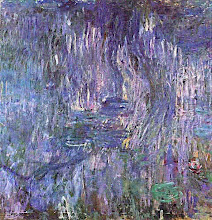 I just finished this wonderful book. Read it over almost one whole year, mainly because I don't read unless I can't get on my computer. Which ends up being when I'm traveling, hence my bookmarks are always boarding pass stubs!
I just finished this wonderful book. Read it over almost one whole year, mainly because I don't read unless I can't get on my computer. Which ends up being when I'm traveling, hence my bookmarks are always boarding pass stubs!It's about a young Indian boy named Piscine, or Pi as his self chosen nickname. His dad is the proud zookeeper of Pondicherry Zoo, a humble community attraction in none other than Pondicherry, South East India.
If you can get past the introductory 1/3 of the book (which is in itself both entertaining and funny), you reach the point where Pi's family have to migrate to Canada, so they sell the animals to various Zoos around the world, and board a cargo ship heading to Vancouver across the Pacific.
The ship Tsimsum is carrying many of the animals which have been sold to Vancouver Zoo as well, and then it sinks... and Pi's stranded "cast-away" journey begins.
Pi finds himself sharing a lifeboat with a Zebra, a Hyena, an Orangutan a few flies and last but definitely not least, a 400 pound Bengal Tiger.
From this last tidbit you probably think, "ok.. so it's a fantasy about a mini Noah's Ark.. I see where this is going." But hang on..
The Animals do not have philosophical conversations with each other about the meaning of life. Instead, they behave like real animals and Pi tells you what happens in frame by frame Clarity that bests the National Geographic, and with him trapped in there, with Reality that makes you regret putting the book down each night as you realise how late the hour became.
The boy Pi tells us that he is a Muslim, a Christian and a Hindu all at the same time. He also manages to have his Muslim Mulla and his Christian Priest as well as his Hindu Guru to accidentally meet all at once and have one of the most amusing exchanges I read in years.
But amusing anecdotal quirks aside, the book simply wants to show us how deeply aware of God Pi is. And ultimately and eventually, how this relationship ends up between the two towards the end of his ordeal at sea.
At the beginning of the book one Indian old man tells the western author:
"I shall tell you a story so wonderous that I promise you, by the time I am finished, you will believe in God!"
One point during his lonely time in the middle of the ocean Pi says one of my favorite lines that stuck with me:
"The stars shone with such fierce brilliance, it seemed ridiculous to call the night dark!"
and this one about Atheism:
"To choose doubt as a philosophy of life is akin to choosing immobility as a means of transportation."
Enjoy :)






